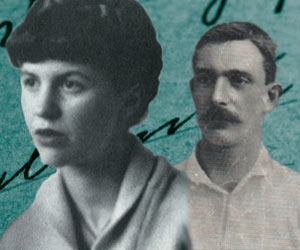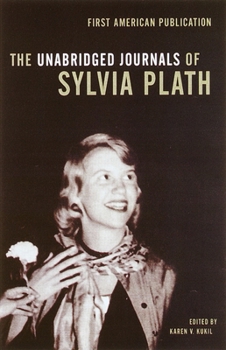The Unabridged Journals of Sylvia Plath
Select Format
Select Condition 
Book Overview
Sylvia Plath's journals were originally published in 1982 in a heavily abridged version authorized by Plath's husband, Ted Hughes. This new edition is an exact and complete transcription of the diaries Plath kept during the last twelve years of her life. Sixty percent of the book is material that has never before been made public, more fully revealing the intensity of the poet's personal and literary struggles, and providing fresh insight into both her frequent desperation and the bravery with which she faced down her demons.
Customer Reviews
Rated 5 starsI've been reading through this book for the past couple...
I've been reading through this book for the past couple of weeks, just popping in and reading bits and pieces periodically. This journal gives great insight on Plath's life and what she faced daily.
1Report
Rated 5 starsAn idiosyncratic pure beat and melodic force
Whether you read The Journals of Sylvia Plath as a writer's notebook, as scenes from a marriage, as social history, or as daily bulletins from one of the most star-crossed love stories of all time, the journal's words help to keep alive the writer who has been called "the literary girl's Elvis" while also bringing us news of how she thought, how she taught, what she read, how she wrote, along with the most primal news of her...
4Report
Rated 5 starsA BEST FRIEND FOR YOUR BOOKSHELF
The good thing about journals is that after you've read them you can dip in again at any page and get caught up in that day's events, action, dilemmas, reflections; once you become more familiar with the contents you can return to favourite passages for pleasure. It's almost like having a best friend on your bookshelf. The biggest barrier for anyone contemplating writing down their innermost thoughts is crossing that line...
1Report
Rated 5 starsGreat book!
It's about time that we got the nearly full story of what she really thought and felt. Although we will probably never see those missing journals which were written months prior to her death, still what remains is riveting. As for the person who mentioned how disturbing her entries are and how she comes across as a 'monster,' well, apparently some people have no appreciation for a) how complicated artistic people are; and...
3Report
Rated 5 starsAt last, the full deal
When Plath's journals were first released fifteen years ago in highly abridged form (thanks to the cuttings of her husband, Ted Hughes), the ellisions seemed as tantalizing as what remained. It has long been recognized that Plath was one of the most articulate minds of her generation, and her life story (in particular, her first breakdown in college, and then her courtship and later break-up with Hughes) has been the source...
3Report
The Unabridged Journals of Sylvia Plath Mentions in Our Blog

Sixty-five years ago today, Sylvia Plath and Ted Hughes met at a party in Cambridge. Their connection was immediate, powerful, and violent—a portent of their future together. Almost exactly seven years later Plath would die by suicide.














